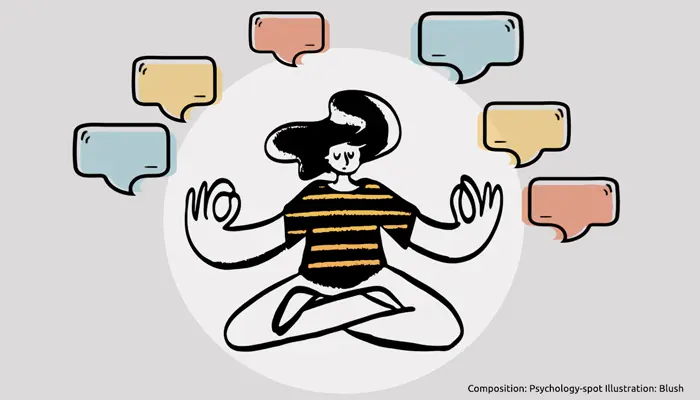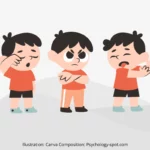
“If your happiness depends on what somebody else does, I guess you do have a problem,” said Richard Bach, an American writer. He was not wrong. However, the truth is that, without realizing it, we tend to deposit our happiness anywhere other than ourselves.
We do it every time we subordinate it to the people around us, the circumstances or even our goals. Every time we condition our happiness to factors beyond our control, we unconsciously assume that we are not worthy of being happy here and now. We send each other a clear message: “My happiness does not depend on me, but on what happens to me and those around me.” Obviously, that is the most direct path to feeling miserable.
Thinking that we need the approval of others to be happy
Albert Ellis claimed that many of our emotional problems come from our irrational beliefs. One of them is the idea that we need the approval of others to be happy. According to Ellis, this thinking is a recipe for unhappiness since it displaces emotional management into other people’s hands, over which we have no control.
Of course, it is difficult – if not almost impossible – to completely get rid of the need for acceptance and the desire for recognition, especially from the most significant people who are part of our circle of trust.
We are social beings, so we need the warmth and closeness of others. However, there is a very fine line between healthy relationships and dependency. When we go beyond it, our happiness begins to depend on feeling like we fit in and being accepted, so we will feel bad if we are rejected, judged or criticized.
Obviously, it is difficult to imagine that we can feel happy when we have an ongoing conflict with our partner, children or parents or if we are rejected for a work project that we have worked hard on. In fact, the goal is not to cling to happiness at all costs. Every emotion has its moment and its reason.
The goal is to take full responsibility for our happiness, rather than leaving it in the hands of others or fate. Happiness is more of a personal decision than a rare confluence of cosmic factors. Epictetus argued that external things cannot affect us more than we allow them to. According to this philosopher, true happiness is found in self-control; that is, taking the reins of what we can control.
What is the way to be happier?
There are no magic recipes. But there are three keys that can guide you along the way:
- Don’t hold others responsible for your feelings. An argument may make you feel bad, but you have the power to decide how long those feelings last. If you hold on to them you will feel miserable for a long time. By letting them go, you can regain your balance and refocus on the things that make you happy.
- Develop autonomy. The more you like your decisions, the less you need others to like them. The more you accept yourself, the less dependent you will be on other people’s acceptance. The better you know yourself and the more comfortable you feel in your skin, the less dependent you will be on the approval of others. This way you won’t subject your happiness to what those around you do or don’t do.
- Look for happiness within, not outside. It sounds cliché, but the truth is that many people have been conditioned to believe that they can only be happy if they have certain things, which also includes people. However, happiness is more of a state of connection, fulfillment and inner peace that emanates from within. If it comes from the outside it is only joy, euphoria or satisfaction, but not happiness.
Last but not least, a small exercise can help you understand the nonsense of conditioning happiness.
Imagine that happiness is found within your home, but you have decided to give the keys to others. You won’t be able to enjoy it until those people open the door for you. What if one day they decide not to? There’s no point in not having the keys to your own home/happiness, even though you can share them with whoever you want.
Therefore, stop thinking in terms of:
“If my partner was more attentive, I would be happy ” or “if I had a partner, I would be happy.”
“If my children listened to me, I would be happy ” or “if I earned more money, I would be happy.”
Although having a great relationship, great children, or a well-paying job is rewarding, they are not a guarantee of happiness. In fact, they often become an excuse to shift the responsibility for our well-being away from ourselves and onto those people.
You don’t have to feel happy constantly. All emotions are valid, even those that we traditionally classify as negative. The objective is another: to eliminate from the path the obstacles that you yourself are creating to sabotage your happiness.
It’s about understanding that you deserve to be happy here and now. With what you have, while you pursue what you want. It’s about being happy in your own way because, at the end of the day, happiness is not the picture that others paint, but what makes you happy – truly.




Leave a Reply